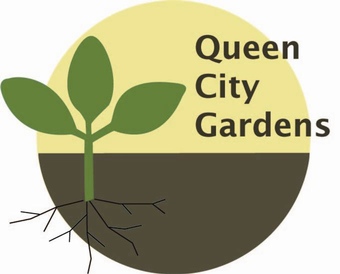
 (Set up)Here is a transcript of what the participants had to say at our community meeting:
(Set up)Here is a transcript of what the participants had to say at our community meeting:
(Intro from Dr. Raja)
In one word, what is your vision for your neighborhood?
Multicultural Supportive Crime-free leaders beautiful sustainable pride colors resurgent community communalism hopeful jobs food resources clean education a center enjoyable friendly where I will live the rest of my life
What do you like about the outdoor environment in your neighborhood?
Garden Week Street Trees Vacant Property Potential Birds Good Neighbors Walkability Butterflies Historic Architecture Squirrels Multicultural Parks Water Mulberry Trees Oak Trees Lilacs Kids Playing Outside Shops Diversity in Growing
What would you change about the outdoor environment in your neighborhood?
Not enough Shopping Property Neglect Bad Neighbors Less Parking on Greenspace/ More Parking for neighborhoods More Private Ownership Less Crime Not Enough Street Trees Want to See Property Well-Maintained More Places for Teens More Palces for Parents More Place For Kids Less Absentee Landlords Less Toxicity MAKE IT FUN Less Potholes Improve Public Transportation More Color More Focus on Immigrants Street Performers More Snow Shoveling by Individuals More Investment in Abandoned Corridors More Affordable Housing
Challenges
Mapping of all Gardens Connection with Universities Retention of Seniors Getting workers and extra help Getting children involved Grant Money Relationship/collaboration forming Pass on Trees and Shrubs Grate lots in neighborhoods Water Access Legal issues (Zoning liability) Publicity/knowledge Regional relationships Prison seed starting Connections with Cornell Extension/ Olmsted Conservancy Equipment from City Petty Politics Utilizing components of other city projects (reuse of materials) community day-city resources Collaboration with Public works Security Fence or no fence debate Fence Chances dynamics Collaborating with commercial gardeners Sharing of Resources and Plants Center for compost sharing meeting points for sharing Bulk cost sharing Purpose of garden
Break Out Groups:
Blue:
What is a Community Garden?
-A Central Part of a community where activities can be done together
-Outdoor space to live
-Shared space with vegetation
-Ownership-community initiated
-Volunteers
-Active living-wellness and nutrition
-Can be just an open green space
-Food Source
Likes:
-Successful gardens are a collective effort to flip neighborhoods and combat crime and issues of race
-Beautification
-Neighborhood upkeep
-Plant theft happened, but the neighborhood got involved in a "True Crime Watch" to protect garden
-Get to know your neighbors
-Children learn- once they learn how to grow and upkeep a property, they will never forget
-Venue for learning
-open to anyone, kids experts- broad range of people and very inclusive
-Senior citizens are key players and gardens act as a tool to get them out onto the streets
-One garden took bits of other seniors' personal gardens and planted them in the communal one
-Multigenerational hub
Dislikes:
-not a textbook approach, but a working approach to gardens
-no pipedreams
-short on leaders- many get burnt out
-young people aren't involved
-Volunteers from out of neighborhoods are taxing to maintain and disconnected from the surroundings
-Gardens are very positive as long as well maintained
-Gardens without water sources
Wants:
-Water lines
-Soil testing
-Permit for Lands
-Land Trust
-Money and equipment
-paid gardeners
-strong outreach
-Change of City's archaic laws
Final definition:
Community Gardens are community centers for social and public activities that are dynamic, diverse, educational, shared and green which promote health and well-being.
Orange Group:
What is a community garden?
-shared space sustained by local community
-opportunity
-civic center spot
-place to learn
-creating roots
-feeling of place
-PRIDE- sense/relation to area/belonging
-FUN: dinners, music, BBQ, cooking/shared needs
-Eating
-reclaiming vacant/under-utilized lands
-community sharing/leadership
-fresh food
-flowers
-epicenter/shared space for cultural diversity and education
-sense of ownership for community connection
-citizens taking back vacant lots to grow food, flowers and have fun
What are the needs?
-access to water
-blog: share ideas/information with out meetings
-sign on lot to explain what is going on
-be more walkable/inviting central location
-city to invest time, effort and energy to embrace gardens
-less government/city intervention and interference
-zoning codes to allow gardening, access to water to be able to have more farming
-more public support and help gardens catch on
-advertise gardening efforts
-legitimize gardens
-lease structure (long term)..create land bank
Definition:
A garden is a shared space to invigorate communalism, recreation, beautification, and pride without prejudice.
Green Group:
Benefits:
-Gardens encourage companionship
-Teach kids to like bugs
-gardens are a site of entertainment-concerts, place to eat lunch- specifically referring to garden by Tri-Main building
-Service learning- for people of all ages- range from grade school to college
-Gardens also have benefits for people with learning disabilities and are handicapped
-encourage community activities
-gardens have music activities that bring people out
Improvements:
-more involvement needed
-better communication
-get various groups to volunteer
-some problems with vandalism
-people take veggies that don't help to harvest
-more people visit and volunteer
-ongoing collaboration
Ideas:
-use raised beds when soil is contaminated
-growing senior citizen population that could service gardens
-potential for program to bring together grandparents and grandchildren
-encourage engagement from Mayor's Junior Impact Team to do heavier work in gardens
-Whatever city digs up should be recycled into garden reuse program
-Business donations
-Economy could encourage people to grow veggies
-gardens can have a special section for kids to grow
Definition:
Place for neighbors to come together producing fresh food with a greater sense of community and to establish friendships. Everyone shares in the garden and it is a place to be proud of.





No comments:
Post a Comment